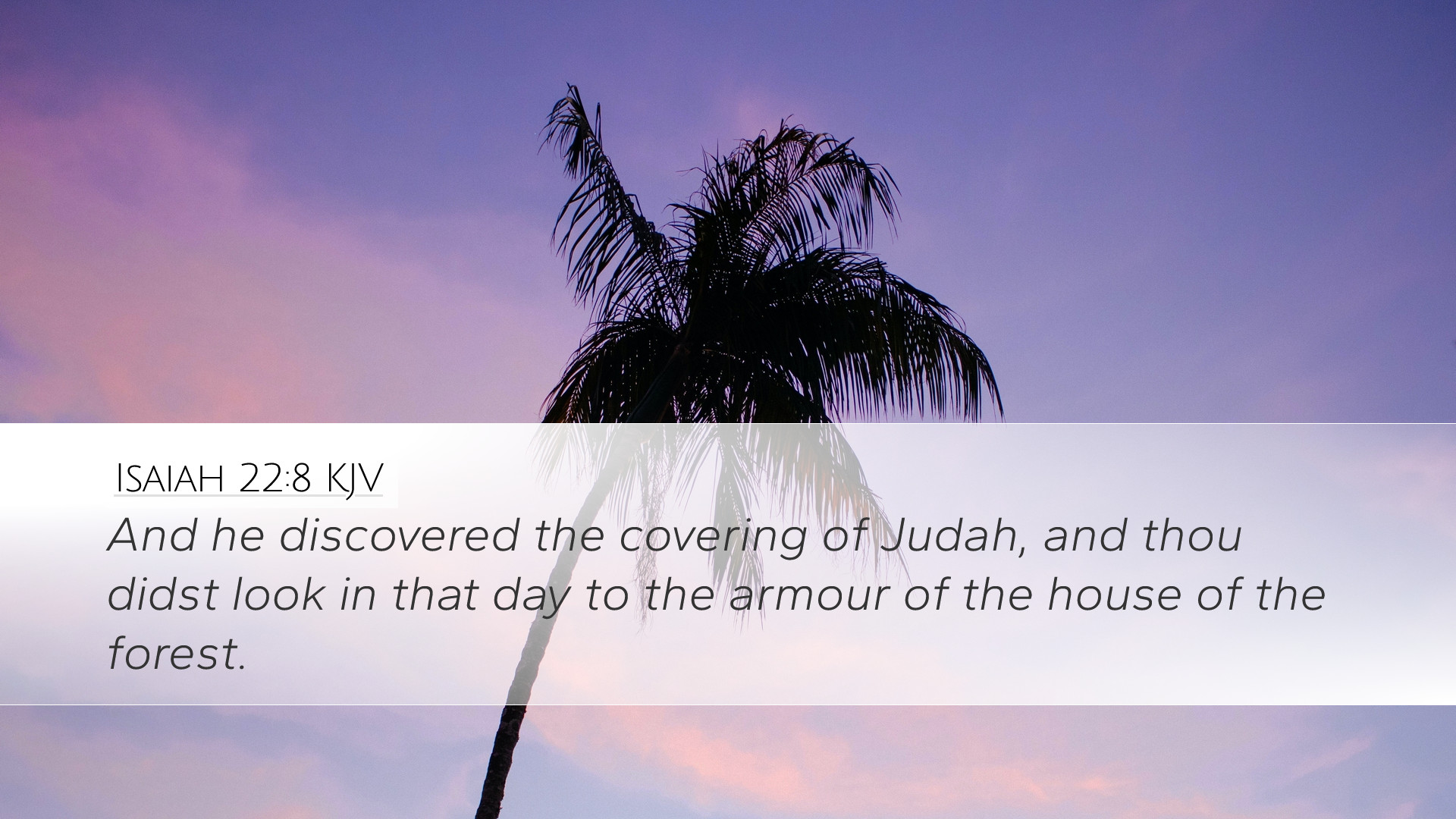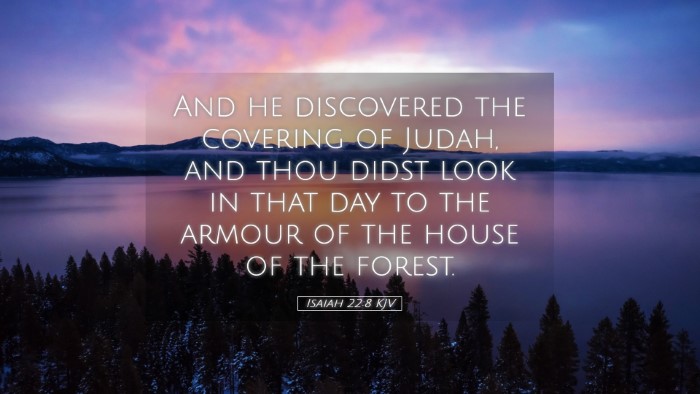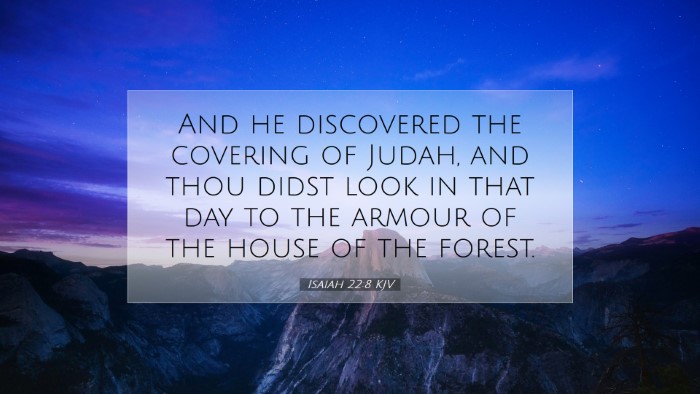Commentary on Isaiah 22:8
Verse Context: Isaiah 22:8 states, "And he discovered the covering of Judah; and thou didst look in that day to the armour of the house of the forest." This verse refers to a period of crisis for the people of Judah, signifying both the physical and spiritual state of the nation.
Exegesis and Theological Insights
This verse is part of a broader narrative in which the prophet Isaiah addresses the dire situation of Jerusalem. In this particular instance, he reveals the actions of God in uncovering the defenses of Judah—a metaphorical exposure that leads to a deeper contemplation of trust and reliance upon divine provision.
Insights from Matthew Henry
Matthew Henry emphasizes the notion of spiritual blindness and the folly of relying solely on human strength. He notes that, despite the exposure of Judah's defenses, the people chose to look to their own resources ("armour of the house of the forest") rather than turning to God. This highlights a critical lesson about reliance on God versus self-sufficiency.
Key Points from Henry:
- Discovery of Covering: The "covering" refers not only to physical defenses but symbolizes God withdrawing His protection due to the people's sins.
- Pride and Self-reliance: In their arrogance, the rulers of Judah sought security in human-made fortifications instead of seeking the Lord.
- Spiritual Implications: Henry encourages a heart of humility, urging believers to acknowledge their weakness and dependency on God’s strength.
Insights from Albert Barnes
Albert Barnes provides a historical context, detailing how Isaiah's words serve as a warning regarding the overconfidence of the leadership in military might. He interprets the "armour of the house of the forest" as an emblem of their misplaced trust in material security rather than in divine grace.
Key Points from Barnes:
- Judah's Resources: The focus on "the armour" indicates a profound shift among the people towards self-protection, reflecting a lack of faith.
- Impending Judgment: Barnes highlights the impending judgment that awaited Judah as a consequence of their failure to see their need for God.
- Call to Repentance: This passage serves as a clarion call for repentance, reminding readers that security must be found in God alone.
Insights from Adam Clarke
Adam Clarke's commentary dives into the implications of God revealing the true state of Judah as part of divine judgment. Clarke elaborates on the belief system of the people, indicating that their hope had become entwined with their material possessions and military alliances.
Key Points from Clarke:
- Revealed Reality: Clarke points out that the "covering" refers to the false security that was stripped away, exposing the reality of their situation.
- Contrasting Fortifications: The reliance on material ARMAMENTS juxtaposed with the lack of trust in God serves as a significant theme in Clarke's interpretation.
- Lessons for Today: Clarke urges contemporary readers to examine their own reliance on worldly security in light of God’s eternal sovereignty.
Application for Modern Believers
As we reflect on Isaiah 22:8, several applications emerge relevant to our current context.
- Dependency on God: Faithful living requires a complete reliance on God, especially in tumultuous times when personal and national securities seem inadequate.
- Sensitization to Spiritual Blindness: Recognizing our limitations and the danger of pride can lead us to seek divine intervention and wisdom.
- Encouragement for Leaders: Pastors and spiritual leaders are reminded to guide their congregations back to God during times of crisis, emphasizing the importance of prayer and repentance.
Conclusion
Isaiah 22:8 encapsulates a pivotal moment for Judah, serving as a powerful reminder for all generations regarding the ramifications of misplaced trust. Public domain commentaries provide rich insights into the text, highlighting the eternal truths about reliance, faith, and divine providence. In our pursuit of understanding, may we remember the lessons of history and strive to place our trust firmly in the Lord.


